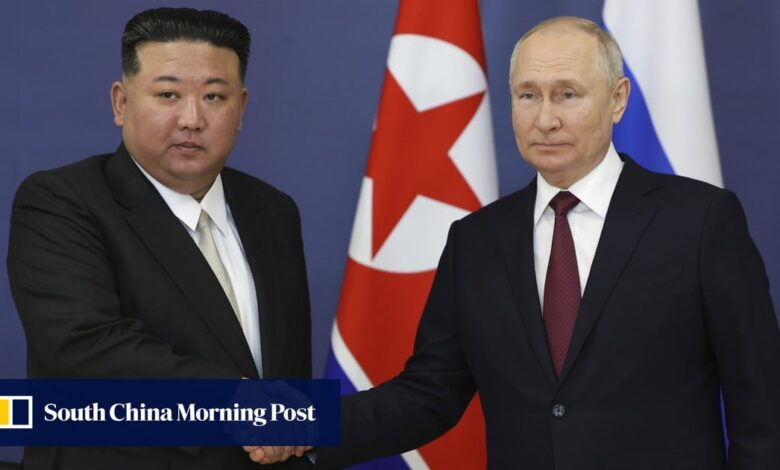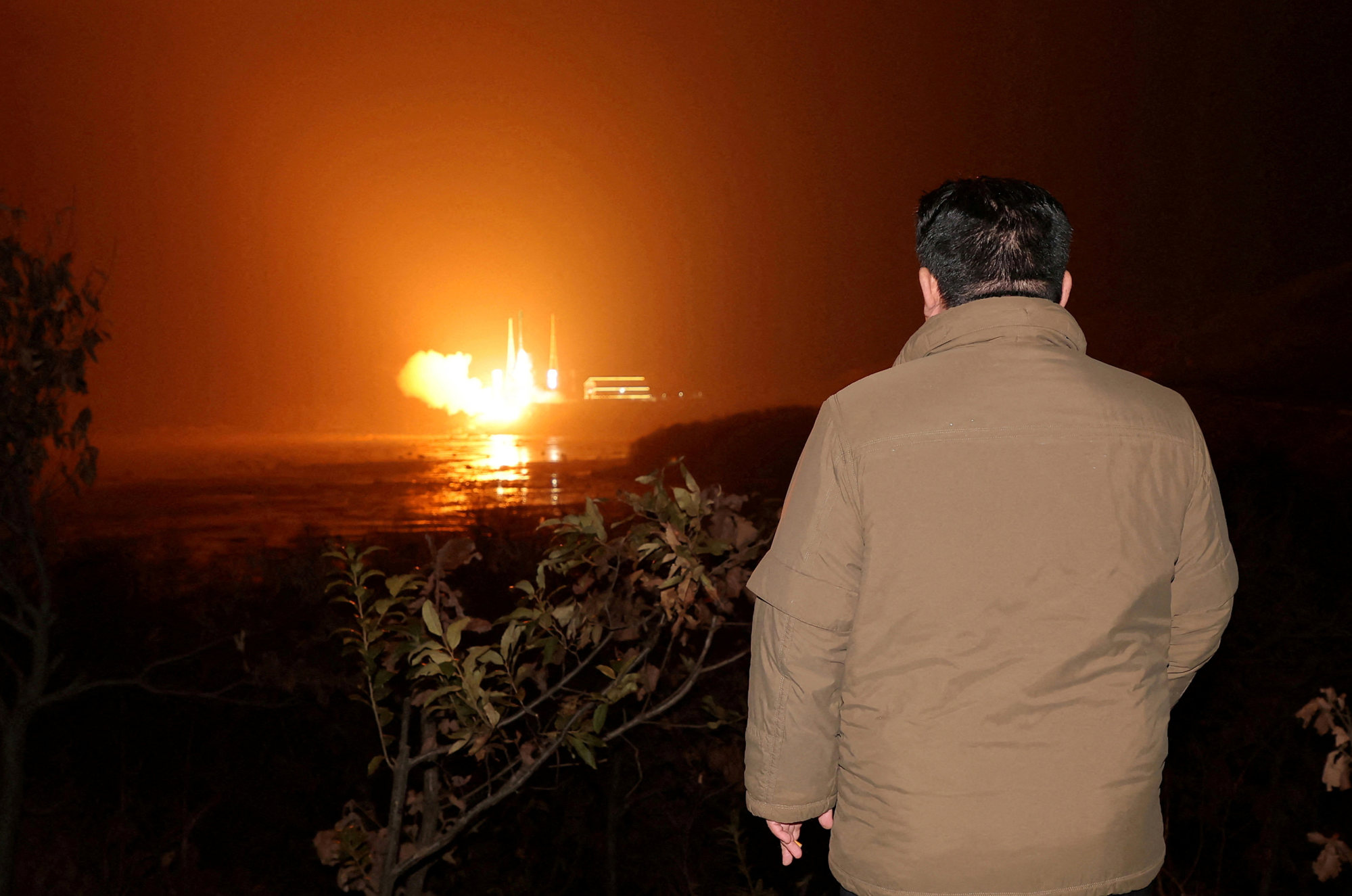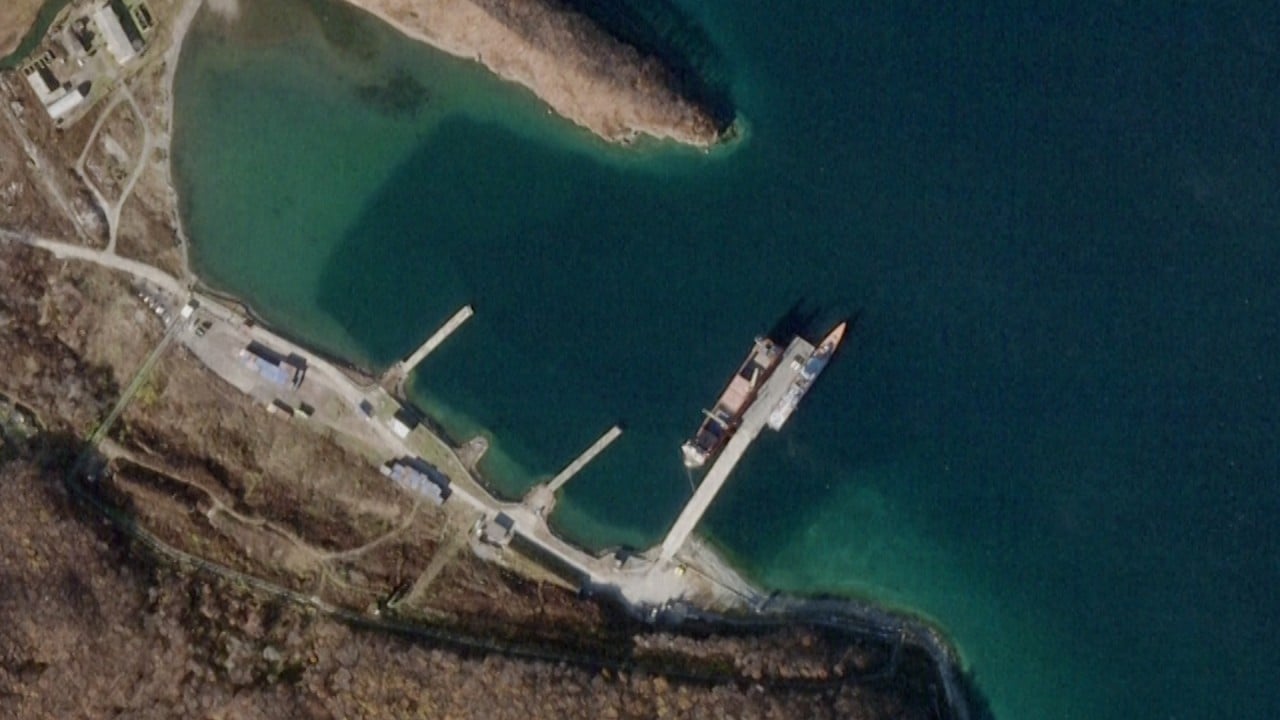‘Emboldened’ by its Russia, China ties, North Korea rejects US calls for talks: ‘Pyongyang can bide its time’

[ad_1]
North Korea gave the offer short shrift, however, saying that “the sovereignty of an independent state can never be an agenda item for negotiations”, adding that it “will never sit face to face with the US for that purpose.”
Opinion: Biden can offer Kim a denuclearisation deal he can’t refuse
Opinion: Biden can offer Kim a denuclearisation deal he can’t refuse
Nah said the move reflected Pyongyang’s propensity to only negotiate in moments of “weaknesses”, such as after its first nuclear test in 2006 when it attempted to “strike a grand bargain with Washington” amid “Soviet abandonment and famines”.
Humanitarian aid was stopped after the test, compounding food shortages in a country whose agricultural output was already hurting from extensive flooding that year.
Meanwhile, the Associated Press reported last month that China – a long-time provider of food and fuel aid to North Korea – had also been helping Pyongyang evade a broad range of international sanctions, according to a review of UN reports, court records and interviews with experts.
Pyongyang can bide its time and is in no hurry to restart talks with the US
North Korea analyst Gabriela Bernal said the country’s Russia and China ties had served to “embolden” its attitude towards Washington as Pyongyang feels it “is not alone and has two of the five permanent UN Security Council members on its side”.
Trump met Kim twice while in office, first in Singapore in 2018 and again the following year in Hanoi, but neither summit produced a comprehensive agreement on North Korea’s nuclear programme.
Bernal, who is studying for a PhD at the University of North Korean Studies in South Korea, said Pyongyang’s refusal to negotiate with the US also stemmed from its belief that the US’ words and deeds do not match.
“Even though Washington keeps offering to hold talks, it is clear the Biden administration has not changed its overall policy approach to Pyongyang,” she said, adding that complete denuclearisation remains Washington’s goal, but is now impossible and “is something North Korea has already flatly rejected”.
Bernal said the only way talks can proceed is if the US is willing to show flexibility, prioritise arms control, and be open to providing gradual sanctions relief in exchange for corresponding measures from Pyongyang.
“What particularly angers North Korea is how one day the US says it is open for the talks and then the next it deploys a nuclear-powered bomber to South Korea and holds joint drills with them [South Korea] and Japan,” she said.
“To North Korea, this strong focus by the US on deterrence does not send the message that diplomacy is a priority for Washington.”

Leif-Eric Easley, an international-studies professor at Ewha Womans University in Seoul, said Pyongyang was more focused on its nuclear weapons programme and arms race with the South.
“Meanwhile, by exploiting so-called Cold War 2.0 geopolitics, North Korea is able to secure enough economic benefits from China and Russia to maintain the Kim regime without any negotiations over sanctions and denuclearisation,” Easley added.
The women in Kim’s life
Since making her public debut in November last year, Ju-ae has appeared with her father at many of the country’s most significant occasions and featured prominently in state media coverage.
But for now, Bernal said Yo-jong was still the more powerful of the two.
Is Kim Jong-un’s daughter the next North Korean leader or a ‘propaganda star’?
Is Kim Jong-un’s daughter the next North Korean leader or a ‘propaganda star’?
“Since the main negotiating figure of [North Korea] is Kim Jong-un, it is more appropriate for Yo-jong to make the more provocative remarks instead of her brother”, she said.
RSIS’ Nah said it was likely that Yo-jong was playing the role of the “bad cop” in the “good cop-bad cop” diplomatic approach and portraying “the stiff and unyielding side of the Kim regime”.
“So if her brother ever says anything more reasonable to the international community, he will not be labelled as a hypocrite,” Nah said.
[ad_2]
Source link


